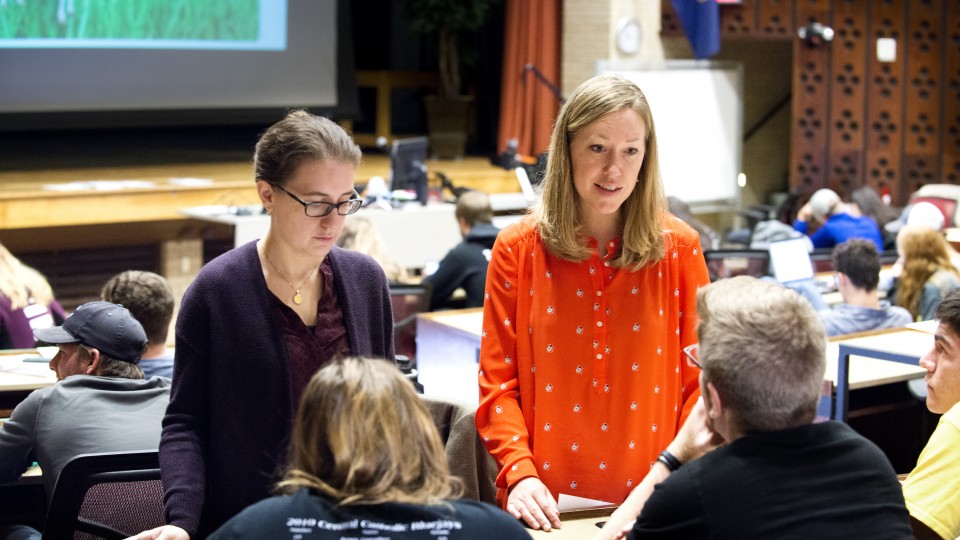
A nearly $300,000 National Science Foundation grant will help a University of Nebraska-Lincoln researcher develop assessments and hone a foundational science course that focuses on teaching students science and decision-making skills.
The course, Science Literacy 101: Science and Decision-Making for a Complex World, is required for all incoming Institute of Agricultural Science and Natural Resources majors, and uses a novel approach to teach students how to understand science and resources to apply to complex personal, professional, local and global issues focused on food, water, energy and health.
The three-year grant will allow science literacy professor Jenny Dauer, of the School of Natural Resources, to develop qualitative methods of examining the course’s effectiveness in teaching decision-making skills.
“The challenge is that science education research often looks at content assessment,” Dauer said, noting that researchers have proven traditional science courses focused on knowledge and methods of science don’t prepare students to make well-reasoned decisions. “But what we’re asking is, ‘How do we assess a student’s ability to make a science-informed decision about complex issues?’”
In additional to developing the unique course’s content, Dauer will have to develop ways to measure how well students apply scientific informational resources to decision-making both before and after the course. The results will be used to improve the course, increase student’s understanding of complex science issues and empower them to make choices that have local and global impacts.
The grant will also allow Dauer to disseminate the course and materials to more universities, colleges and possibly high schools (some of Dauer’s teaching materials already are already being adapted for use at other institutions), opening the door for additional research opportunities.
“This grant will allow us to study this course, which is unlike any college course I’ve seen elsewhere,” she said, “and help us understand how well a course like this teaches decision-making skills that transfer across disciplines, and develop a better understanding of how science classrooms can have an impact on students’ professional and personal science literacy.”
Dauer credits the university and the College of Agricultural Sciences and Natural Resources with making science literacy a priority at Nebraska and allowing professors to take risks in developing courses.
“Our students are learning to utilize science and how to apply science in their lives, not just hold the knowledge of science in their heads,” she said.
For example, over the course of a semester, students examine socioscientific questions such as: “Should we limit water used in irrigation across the state?” or “Should we use biofuels?” They learn to examine science’s role in those issues as well as how to evaluate their personal values in making a decision on the topic. They learn to find and verify the quality of scientific literature used to support decisions, and then get critical feedback on how well they used science to arrive at a conclusion.
In the end, it’s about realizing socioscientific issues are complex, and multiple values must be considered and weighed in an issue’s solution.
“That’s something we don’t know to teach yet,” Dauer said. “We don’t know what teaching that looks like.” But her research will bring professors a step closer to an answer.
— Shawna Richter-Ryerson, Natural Resources